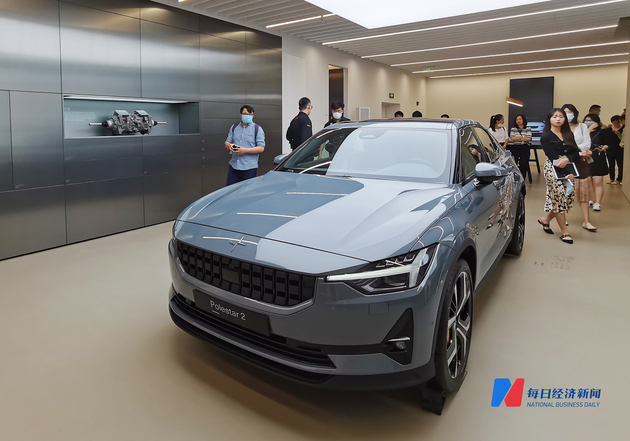
Photo/Sun Tongtong (NBD)
Geely Holding Group, the parent company of Volvo Cars, announced on February 1 that it will become a major shareholder of Polestar. The move is part of a broader restructuring effort at Volvo Cars, which is seeking to focus on its own transition to electric vehicles.
If the equity adjustment is completed, Geely Sweden Holdings under Geely Holding Group will become an important shareholder of Polestar.
It is learned that Volvo Cars currently holds 48% of Polestar, and Li Shufu, chairman of Geely Holding, owns part of Polestar through related companies.
“How much stake will be transferred depends on the approval of the regulatory authorities, and it is estimated that 10% to 20% will be retained,” said people familiar with the matter to NBD.
The announcement of the deal was met with mixed reactions. Volvo Cars' stock price rose by as much as 30% on the news, while Polestar's stock price fell by 15.67%.
Volvo Cars reported strong results for 2023, with global sales of over 708,000 cars. The company's revenue increased by 21% to SEK 399.3 billion. Volvo Cars' operating profit was SEK 25.6 billion, an increase of 43% from 2022.
The company's strong performance was driven by continued demand for its luxury cars and SUVs. Volvo Cars' XC60 and XC90 models were the company's best-sellers in 2023.
Volvo Cars also made significant progress in its electrification strategy. In 2023, the company sold over 100,000 electric cars, an increase of 120% from 2022. Volvo Cars plans to go all-electric by 2030.
Polestar, a Swedish electric vehicle maker that is majority-owned by Volvo Cars, reported disappointing results for 2023. The company's global sales of 54,600 cars were below its revised guidance of 60,000 to 70,000 cars.
Polestar's sales in China, the world's largest electric vehicle market, were particularly weak. The company sold just 880 cars in China in the fourth quarter of 2023.
Polestar did not release specific data on its performance in the Chinese market in the whole year of 2023. However, according to industry estimates, the company's sales in China in 2022 were around 1,000 to 2,000 units. In 2021, Polestar sold 2,048 units in China, accounting for 7% of its global sales.
It is worth noting that in the seven years since its establishment, Polestar has changed six CEOs in China, but still failed to reverse its decline in the Chinese market.
In order to open up the Chinese market, in June last year, Polestar announced that it would establish a joint venture with Xingji Meizu Group for the Chinese market, namely Polestar Technology, to take over Polestar’s business in China. Among them, Polestar owns 49% of the shares, Xingji Meizu holds 51% of the shares, and Xingji Meizu is responsible for arranging the financing of the joint venture in the future.
Polestar previously stated that the company’s goal is to achieve cash flow breakeven by 2025, by which time its annual output will reach at least 155,000 units. In order to accelerate the improvement of profit margin and reduce the company’s total capital demand, Polestar announced a global layoff plan last year, involving about 750 people, accounting for about 25% of the global staff.
Data shows that on June 24, 2022, Polestar closed at $13 per share, while on February 1 this year, Polestar closed at only $1.83 per share, a drop of more than 85.9%. In terms of market value, Polestar’s market value was $26.595 billion on June 24, 2022, while on February 1 this year, the company’s market value was only $3.899 billion, a loss of $22.696 billion in less than two year


 川公网安备 51019002001991号
川公网安备 51019002001991号





